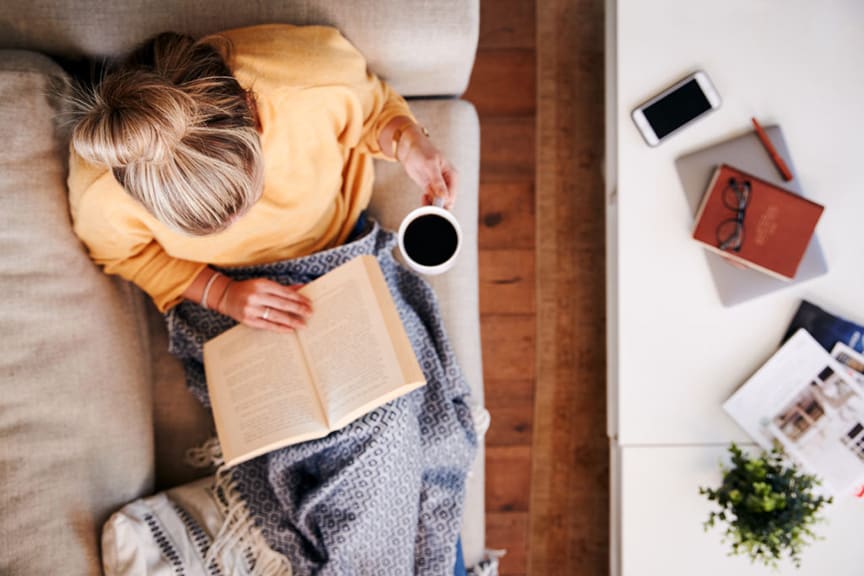As the number of Coronavirus cases crosses the 6,500 mark in India, it is important to ensure that the strategy to contain the virus does not wreak havoc on the nation’s mental health
Social distancing, though essential during the Covid-19 pandemic, comes at a cost. Humans have structured their existence based on social parameters, the loss of which can be disturbing in the least and devastating at the most.
The lockdown and isolation of infected individuals warrant special mental health attention. “Natural mental health response to a sudden worsening in living circumstances involving separation and uncertainty accentuated by helplessness can result in heightened levels of low or depressive mood, heightened levels of anxiety and panic, feeling edgy or irritable and outbursts of anger,” says Aarushi Dewan, a Resident Clinical Psychologist and part of an initiative named Panacea that provides audio and video therapy sessions to those in need.
She adds, “For individuals who have tested positive and have been subjected to isolation, the experience can have a long-term effect on their mental health in the form of Post-Traumatic Stress Disorder (PTSD) symptoms and depression. A preoccupied concern or persistent anxiety regarding one’s health might also develop.”
For the rest of the people, she says that as the duration of the lockdown increases so will its psychological toll. According to her, the need to extend the duration of the lockdown may make it difficult for people to adhere to its rules, making them feel suffocated and helpless due to being in the same setup for prolonged periods of time. But these, she says, are short-term effects and will not have a long-term effect on people’s mental health.
Echoing her thoughts, Dr CR Satish Kumar, Consultant Clinical Psychologist, Manipal Hospital Bangalore says that amongst individuals who have tested positive for the virus, “Death anxiety is high. They quarrel with the hospital staff to let them talk to their family members and some are aggressive and violent. During the quarantine period, some develop feelings of sin and guilt which makes them vulnerable to developing suicidal thoughts.”
But the problems do not end there, and it is not just individuals who have been put under quarantine who have to face the threat of mental problems. Even the public at large is at risk of developing mental health issues as the supply of tobacco, alcohol and other addictive substances have come to a complete halt. And though it may seem like a blessing in disguise to non-addicts, for others it can lead to severe problems.

“The unavailability of substances for individuals can trigger their anxieties and other withdrawal symptoms like shivering, sleep and appetite disturbances, sweating and palpitations. Withdrawal from most classes of substance can be unpleasant and patients with active substance use disorders who find themselves sequestered in isolation or in the quarantine may require detoxification via medicines with the help of a de-addiction psychiatrist over online consultation,” says Dewan. So the sudden disruption of substance abuse may not be such a good idea after all.
But there are ways in which people can ensure that the lockdown does not have a negative impact on their mental well-being. Both Dewan and Dr Kumar suggest regular exercise, mindful meditation and setting a routine to combat mental problems. They also suggest staying connected via video calls with friends and family and using free time to write about the positive aspects of life in general and staying optimistic while taking precautionary appropriate measures is necessary.
Especially for people who are living alone during the lockdown, it is important to maintain a healthy balance between work and pleasure. Dewan advises dividing time for different activities. ”Pleasure activities make you joyful — such as watching a show, dancing, singing and reading. Achievement activities give you a sense of achievement or accomplishment such as studying, a work task, an exercise routine, some housework, cooking a new recipe and closeness/connection activities that help you feel close and connected with others as like calling friends and family using the phone and video calls, sharing online activities as playing games or virtual film club.”
Talking about creative ways of dealing with the anxiety building up, Dr Kumar says, “Art therapy shows excellent results in dealing with mood/ attention-related issues. Alternatively, creative writing, dancing, singing, and even music therapy have shown evidence in uplifting positive spirits in people”.
Keeping in mind that in India where a large section of the population lives in crowded houses and still stigmatises mental problems, issues like ‘cabin fever’ are also a threat. According to Dewan, “cabin fever is not itself a disease and there is no prognosis. It can be caused by being stuck at the same location for an extended period of time”. The best way to prevent it she says is “using an activity menu or routine to stay occupied, noticing and limiting worry triggers and seeking help from mental health professionals if experiencing unmanageable anxiety, depressive symptoms or irritability and aggression.
As we fight the pandemic, the importance of mental health of individuals should not be forgotten and Kerala has set an example for us to follow. Thousands of mental health care professionals have been deployed by the Kerala government to combat issues arising from the lockdown who make sure that its people do not succumb to these grave times. A similar approach then is needed to ensure that the country emerges stronger, both physically and mentally from this pandemic.





